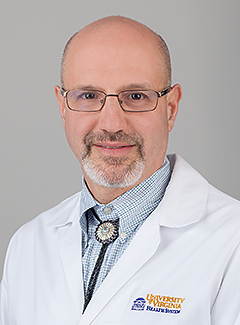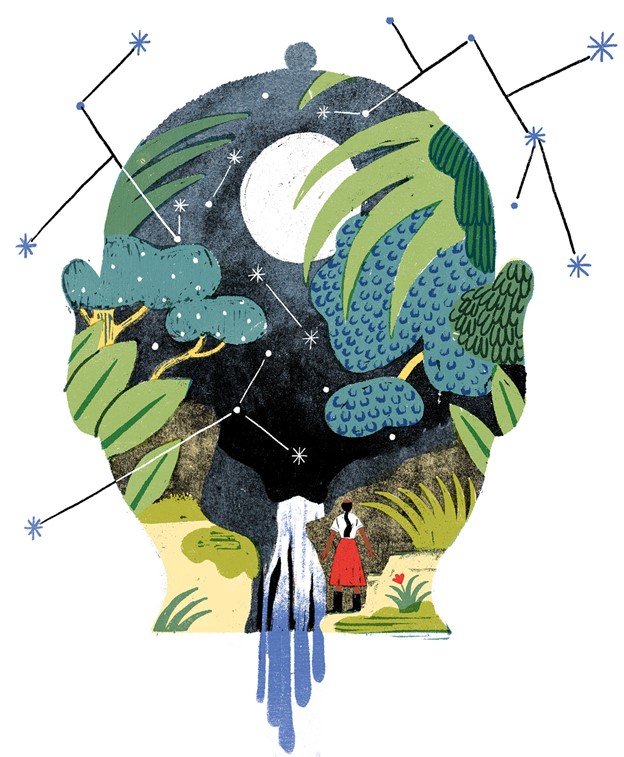Perfecting Imperfection
 “When we learn self-compassion, we are able to have genuine compassion for the frailties and unwise actions of others,” says Dr. Matthew Goodman, an associate professor of internal medicine in the University of Virginia‘s School of Medicine. Dr. Goodman is a senior teacher in the UVA Mindfulness Center of the Division of General, Geriatric, Palliative & Hospital Medicine and has a strong interest in helping patients change self-destructive behaviors.
“When we learn self-compassion, we are able to have genuine compassion for the frailties and unwise actions of others,” says Dr. Matthew Goodman, an associate professor of internal medicine in the University of Virginia‘s School of Medicine. Dr. Goodman is a senior teacher in the UVA Mindfulness Center of the Division of General, Geriatric, Palliative & Hospital Medicine and has a strong interest in helping patients change self-destructive behaviors.
PERFECTING IMPERFECTION
“They’ve got a name for the winners in the world, I want a name when I lose.”
…Steely Dan, “Deacon Blues”
In a lecture at Cornell University, the Dalai Lama sat cross-legged, beaming out at a large gathered crowd. He looked back and forth and then said four words: “Big heart, isn’t it.”
One favorite story of mine, likely apocryphal, involves a famously wise and taciturn physician. When asked about his prowess, he claims “good judgment.” When asked to explain how one acquires good judgment, he cites “experience.” When asked what constitutes experience, he answers “bad judgment.”
Universities are centers of excellence, intelligence, and innovation. As they should be. Knowledge and scholarship are the coins of the realm. The UVA Today Daily Report brings us news of the successes of our doctors, scientists, scholars, and athletes. All causes for applause.
The bar is set high for each of us, and sometimes we fall short of our own expectations. Sometimes we miss a shot or a diagnosis or a deadline. Sometimes we are sidelined by our own physical, mental, or family ailments. These are more difficult to cope with, embedded as we are in a culture that values perfection and frowns on “losers” and mistakes.

How can we learn from our mistakes without beating ourselves up, growing and acquiring wisdom without undergoing demoralization? First, we can learn to practice non-judgment. In Zen Mind, Beginner’s Mind, Shunryu Suzuki teaches us that we needn’t label unwise actions as bad. When we see the fruit of those actions, we simply remind ourselves “not to do.”
A teaching that can help with confronting our own imperfection is from Buddhism: that of the Bodhicitta, or heart of compassion. We each have a tender spot, a spot where we feel vulnerable, a spot we like to cover over with armor. Our natural instinct is to get away from pain, to blame someone, to berate ourselves, to change the subject, to drown our sorrows with work or substances.
Instead, we are invited to tolerate the discomfort, to accept ourselves as part of humanity, and to move closer to our own heart. When we learn self-compassion, we are able to have genuine compassion for the frailties and unwise actions of others.
At the University, we live in community. Let us incorporate non-judgment and compassion into our teaching. Let us prize meaning, humanity, generosity, and kindness as well as excellence. Let us make our connections and support of each other at least as important as fame, advancement, and awards.
Big heart. Isn’t it.
Continue your education with Lifetime Learning’s online resources available to alumni, parents, and friends.
The Thoughts From the Lawn (TFTL) blog is published by Lifetime Learning at the University of Virginia’s (UVA) Office of Engagement. This platform features UVA faculty and staff articles for the benefit of UVA’s alumni, parents, and friends. The views expressed in TFTL blog posts reflect the views of the authors and not those of Lifetime Learning. Lifetime Learning reviews the content and links in each article before publication; however, we take no responsibility for inaccurate information and/or links that lead to post-publication, unintended sites. Lifetime Learning is not responsible and will not be held liable for blog comments and reserves the right to remove malicious or mean-spirited responses.
- Guastavino Tile at the University of Virginia
- Abraham Lincoln on Character, Leadership and Education
- Silence is Golden: Celebrating the History of Silent Films
- UVA Club of Atlanta: Women's ACC Basketball Tournament - UVA Fan Events
- UVA Northern Virginia Programs Fair
- UVA Club of Los Angeles: Influential Communication